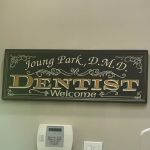Dental Checkup Tips – How to Prepare for a Successful and Stress-Free Visit
- 1. Why Dental Checkups Are Important
- 2. How to Prepare for a Dental Checkup
- 3. What to Expect During a Dental Checkup
- 4. Tips for Maintaining Good Oral Health Between Checkups
- 5. Dealing with Dental Anxiety
1. Why Dental Checkups Are Important
Regular dental checkups are a vital part of maintaining overall oral health. These appointments allow your dentist to spot potential issues early, such as cavities, gum disease, or even oral cancer, which can often be detected before symptoms appear. Early detection can save you time, money, and a lot of discomfort down the road.
Dental checkups also help keep your smile bright and healthy by providing professional cleaning that removes plaque and tartar build-up, which can’t be addressed with just brushing and flossing. By staying on top of these appointments, you can prevent many common dental issues from becoming serious problems.
2. How to Prepare for a Dental Checkup
Preparation for your dental checkup starts long before you step into the dentist's office. It’s essential to gather the right information to ensure a smooth visit. Start by making a list of any concerns you may have about your oral health, such as tooth sensitivity, pain, or changes in your gums or mouth. Bring up any questions during your checkup so your dentist can provide guidance tailored to your needs.
It’s also important to ensure that you’re up-to-date on your dental records. If you’ve switched dentists or moved to a new area, transfer your records ahead of time so the new dentist has a full history of your oral health. Additionally, make sure to brush and floss your teeth before your appointment to ensure your teeth are clean and to give your dentist a better view of your mouth.
3. What to Expect During a Dental Checkup
During your dental checkup, your dentist or hygienist will begin by reviewing your dental and medical history, followed by a thorough examination of your mouth, gums, teeth, and jaw. Expect your dentist to check for signs of cavities, gum disease, and other oral health issues.
After the examination, your teeth will be professionally cleaned to remove plaque and tartar that brushing alone may have missed. This cleaning can help prevent tooth decay and gum disease. You may also have X-rays taken to check for problems that aren’t visible during a visual exam, such as cavities between teeth or bone loss.
If any issues are detected, your dentist will discuss them with you and may recommend a treatment plan based on the severity of the problem. Whether it’s a filling, cleaning, or more extensive procedures, you’ll be given clear instructions on how to proceed.
4. Tips for Maintaining Good Oral Health Between Checkups
Maintaining good oral health between checkups is key to preventing issues from developing. Here are some important tips to follow daily:
- Brush your teeth twice a day: Use a fluoride toothpaste and brush for at least two minutes to remove plaque and prevent tooth decay.
- Floss daily: Flossing helps remove food particles and plaque from between your teeth, preventing cavities and gum disease.
- Limit sugary foods and drinks: Sugary foods feed bacteria in your mouth, leading to tooth decay. Try to minimize their consumption.
- Stay hydrated: Drinking water helps wash away food particles and bacteria, reducing the risk of cavities and gum disease.
By incorporating these habits into your daily routine, you can keep your teeth and gums in top shape, ensuring you only need to visit the dentist for routine checkups rather than emergency treatments.
5. Dealing with Dental Anxiety
It’s common to feel anxious about visiting the dentist, but there are steps you can take to reduce your fear and make the experience more comfortable. Start by choosing a dentist who makes you feel at ease and is understanding of your concerns. Communicate openly about your anxiety, so they can offer solutions such as sedation dentistry or calming techniques to help you relax.
Another helpful tip is to practice deep breathing or bring a stress-relieving item, such as a fidget spinner or a comforting music playlist, to distract yourself during the procedure. Remember, dental visits are essential for maintaining good oral health, and your dentist is there to help you every step of the way.
If you need more guidance on preparing for your next dental checkup or have any concerns about your oral health, visit Dentistry Toothtruth for more tips and professional advice to ensure a healthy, confident smile.







 Park Family and Cosmetic Dentistry5.0 (51 review)
Park Family and Cosmetic Dentistry5.0 (51 review) Dentists of South Pasadena4.0 (124 review)
Dentists of South Pasadena4.0 (124 review) Dentistry for Children - Peachtree City4.0 (780 review)
Dentistry for Children - Peachtree City4.0 (780 review) Cary Lee Family Dentistry - Dr. Jae S. Lee DDS, PA4.0 (113 review)
Cary Lee Family Dentistry - Dr. Jae S. Lee DDS, PA4.0 (113 review) Silicon Valley Dental4.0 (214 review)
Silicon Valley Dental4.0 (214 review) Wild West Orthodontics4.0 (22 review)
Wild West Orthodontics4.0 (22 review) The Importance of Oral Health Education During Pregnancy for a Healthy Pregnancy
The Importance of Oral Health Education During Pregnancy for a Healthy Pregnancy Best Tips for Brushing Your Teeth Properly for Healthy Gums: Essential Techniques for Oral Health
Best Tips for Brushing Your Teeth Properly for Healthy Gums: Essential Techniques for Oral Health Why Skipping Dental Checkups Can Lead to Bigger Oral Health Problems
Why Skipping Dental Checkups Can Lead to Bigger Oral Health Problems Advantages of Porcelain Dental Restorations
Advantages of Porcelain Dental Restorations How Can Diabetes Cause Tooth and Gum Problems? Preventing and Managing Oral Health Issues
How Can Diabetes Cause Tooth and Gum Problems? Preventing and Managing Oral Health Issues Healthy Habits for Promoting Good Oral Health and Hygiene: Tips for a Healthy Smile
Healthy Habits for Promoting Good Oral Health and Hygiene: Tips for a Healthy Smile